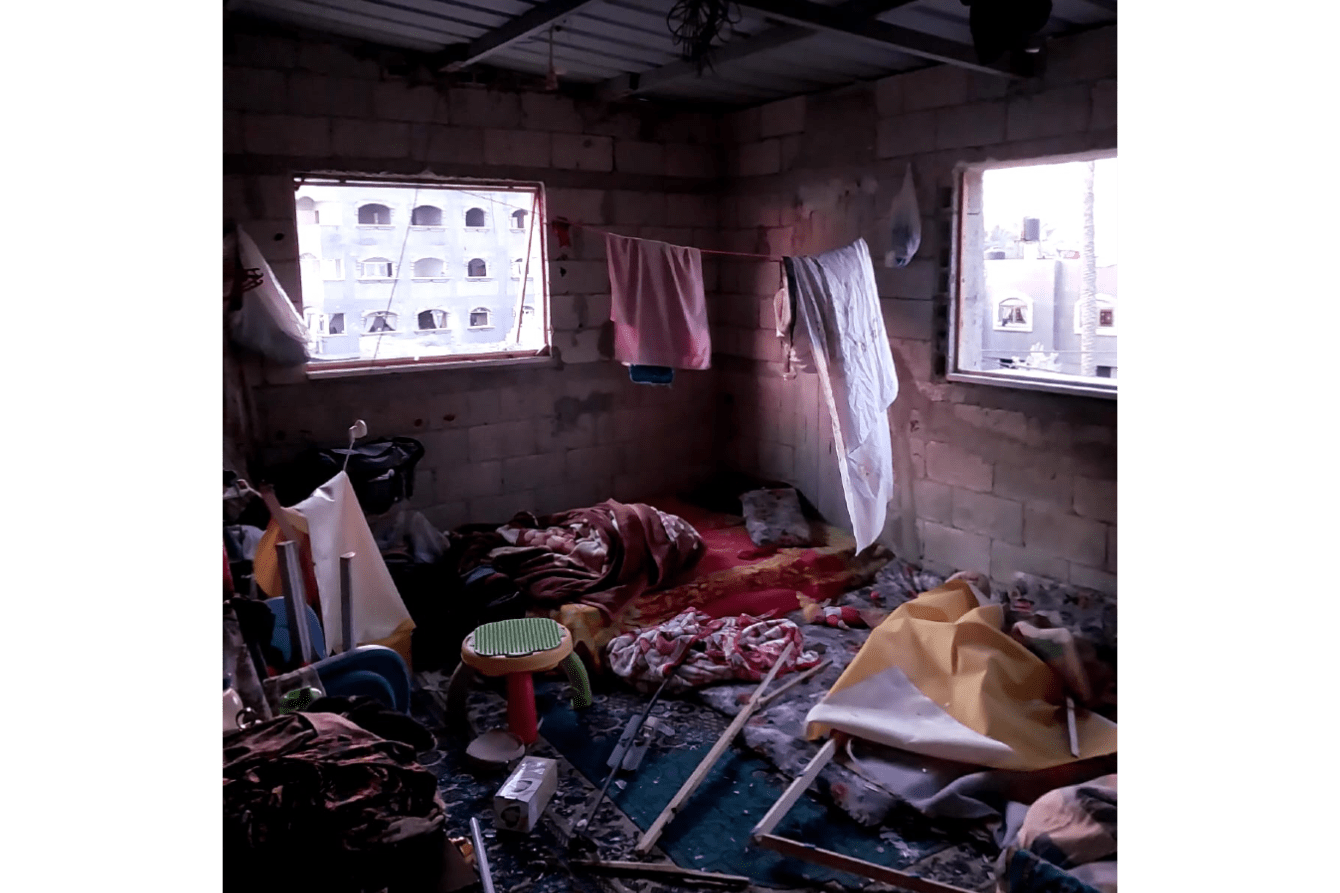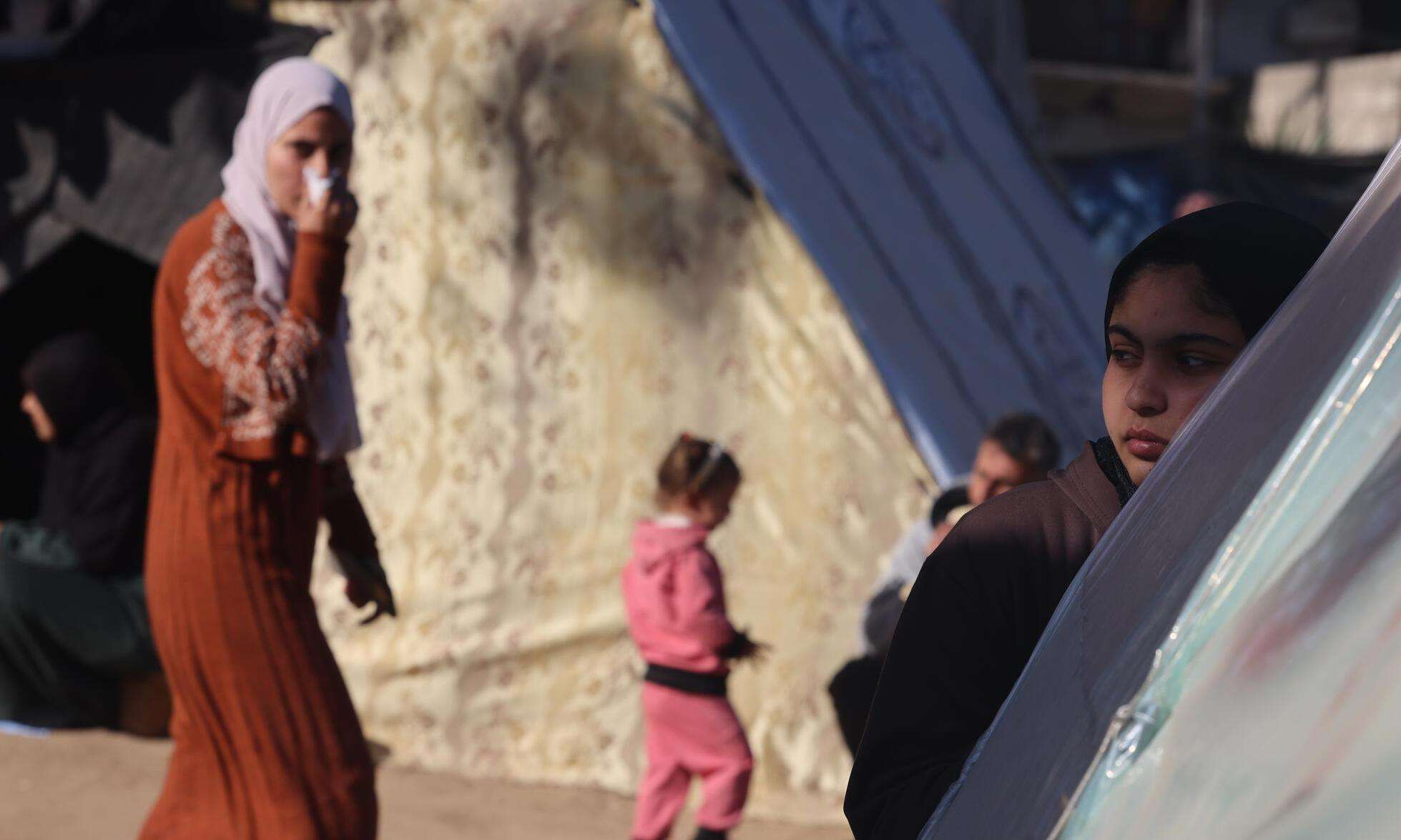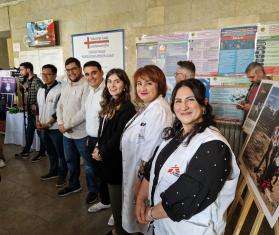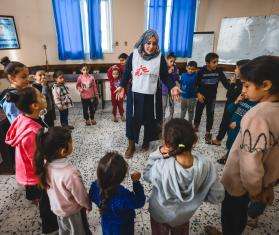Doctors Without Borders/Médecins Sans Frontières (MSF) team members in Gaza have been sending us voice notes describing the dire situation as Israeli strikes in the south, particularly Rafah, have been intensifying. Nearly 1.5 million displaced Palestinians are sheltering in Rafah after being displaced from the northern and central parts of Gaza as the war has progressed. Israeli forces have threatened a ground invasion of Rafah, which would be devastating for all the people who have gathered in what was supposed to be a safe place.
Here are two new voice notes we received yesterday.
From an anonymous MSF staff member:
"Today is Monday, the 12th of February, 2024. I was awakened at midnight because of bombing and couldn't fall asleep again. Around 5:00 a.m., there was a very strong airstrike, and in the beginning I thought it was my home. Then within seconds, I remembered my kids and I heard things falling apart in the room, so I covered my youngest daughter who was sleeping on my arm with sheets and went running to my other kids ... There were a lot of things hitting my back—stones, wood, a lot of other things that I couldn't understand in those few seconds.
At that moment, I felt nothing but pain, horror. I was really out of my mind. After I checked that my kids were okay, I was worried about my family because I am currently living on their roof. I went down there. All the glasses had been broken, but thank God they are all alive and nobody was injured. We left our home for an hour till sunrise so we could see better. When I came back, I saw what happened. Everything was covered with sand and dust. All the windows and doors had been broken.

We lost a lot of things, but at least we are alive. A friend of mine called and asked me if I was fine, but to be honest, I forgot the meaning of fine. Everybody here is just checking on each other [to see] if we are alive. It's not easy anymore to continue at the same level.
At our home, when we were checking it, I found pieces of human flesh. We found a whole limb belonging to a human and we don't know who he is. When I saw the pieces of flesh on the floor, I cried.
I know that this message means nothing to a lot of people and will change nothing, but I know that if we don't leave now, we will leave in the next airstrike or the next. And to be honest, the ones who die are the ones who are lucky. The ones who live to suffer again and again and again, are the ones who have been cursed and abandoned by all people all around the world. It's not fair and it's not justice.
I don't know how anybody can sleep knowing that our kids are suffering for nothing. We are only civilians. I am a doctor, my husband is a doctor, and we are suffering since day one of this war. I don't know if it's going to end soon. I don't know if we are going to survive the next hour or two. All I know is that the only thing that keeps my mind from falling apart is my faith that God is merciful and won't let us down. Not like what all people around the world did."
Yesterday, an MSF project coordinator, Lisa Macheiner, sent a message describing the situation in Rafah:
"There were attacks in Rafah yesterday [February 11] and also during the night. From Khan Younis, we could hear a lot of heavy explosions. Our windows and doors were shaking throughout the whole night. It was very, very noisy.
People don't feel safe. Children are terrified. They are distressed and it's been going on for months now and people are exhausted. There are hundreds of thousands of people everywhere. There is no space anymore. There is no space to move in a car. There is sometimes even no space to walk. There is a lack of access to food, lack of access to water, lack of access to sanitation, lack of access to health care. There is a huge need for primary health care, for follow-up of patients who had surgeries, multiple surgeries. There are people with infected wounds.
We do see people start to move, taking the little belongings they have left to try to get to a safer place. They don't know what to do anymore and they feel unsafe and terrified about what is going to happen next.
'Where is it safe?'
'Where should we go?'
And there is no answer to that. And it really leads to a feeling of despair.
It's quite sad to see how empty people's eyes are despite all the resilience that people have here."




